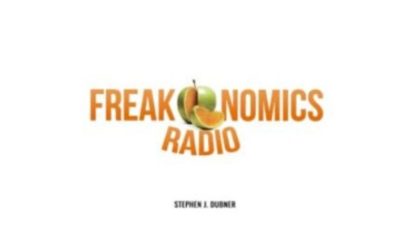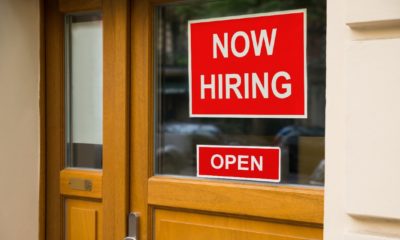bank
How To Make Your Retiriement Fund More Rotund

Swapping the desk for a couch, seminars for naps, and the boss for your partner: retiring should be the longest day off you’ll ever have.
Hence, the workplace retirement plan
It is usually referred to with the bureaucratized and robot-like term, 401k, which conjures up images of stacks of paper and a brooding accountant.
This plan can do you a world of good for your days in the sun, but it has to be used prudently, as mistakes could see you losing tens or hundreds of thousands of dollars throughout your career.
The following is a table showing potential earnings, at both low and high ends of the salary spectrum, from FinancialSamurai.com in 2014:

Harriet J. Brackey, the co-chief investment officer at GSK Wealth Advisors in Florida, says the key is getting to grips with your workplace plan.
On top of this, there is the obvious need to save amply and know exactly what your retirement needs will be.
You needn’t have the brain of a Buffett or a Sachs for this, as she states, “It's not rocket science, you can make a well informed decision if you just slow down.”
The most common mistake: Forgetting to milk the corporate cash cow
The most common mistake, according to Brackey, is people not putting in enough to get the full company match, where your employer matches your contribution, thus doubling your savings amount!
Aon Hewitt reports that in 2015, 23% of employees didn’t get the full match, and thus lost out on free money.
With an average annual employer contribution of $3,540, up to $100,000 or more could be missed out on over a 20 year work period, say Fidelity Investments.
[ms_divider style=”normal” align=”left” width=”100%” margin_top=”30″ margin_bottom=”30″ border_size=”5″ border_color=”#f2f2f2″ icon=”” class=”” id=””][/ms_divider]
[ms_featurebox style=”4″ title_font_size=”18″ title_color=”#2b2b2b” icon_circle=”no” icon_size=”46″ title=”Recommended Link” icon=”” alignment=”left” icon_animation_type=”” icon_color=”” icon_background_color=”” icon_border_color=”” icon_border_width=”0″ flip_icon=”none” spinning_icon=”no” icon_image=”” icon_image_width=”0″ icon_image_height=”” link_url=”https://offers.thecapitalist.com/p/58-billion-stock-steal/index” link_target=”_blank” link_text=”Click Here To Find Out What It Is…” link_color=”#4885bf” content_color=”” content_box_background_color=”” class=”” id=””]This one stock is quietly earning 100s of percent in the gold bull market. It's already up 294% [/ms_featurebox]
[ms_divider style=”normal” align=”left” width=”100%” margin_top=”30″ margin_bottom=”30″ border_size=”5″ border_color=”#f2f2f2″ icon=”” class=”” id=””][/ms_divider]
Taking the turkey out before it’s done
An important aspect of a 401k that many don’t realize is that like all funds, it has a compounding effect regarding returns.
If, when you leave a job, you transfer the funds to a new workplace plan or IRA (rather than cashing out as one in five workers do) you gain considerably more.
This requires a minimum amount of $5000 (less than $1000 and the employer can cash it out for you).
Meghan Murphy, of Fidelity, explains that cashing out $16k from a plan would see $11,200 after taxes and penalties; as opposed to around $80k by age 67 were they to have let the balance sit.
Letting your HSA float away
Only four out of ten workers with access to a federal income tax-exempt health savings account (HSA) are contributing to one, while half only use the money for short-term expenses, says PWC.
HSA assets should be allowed to grow over long periods to cover retirement health expenses, according to Carolyn McClanahan of Life Planning Partners.
An EBRI (Employee Benefit Research Institute) report from 2014 also found a maximum contribution to an HSA, without withdrawals, could see returns of up to $200k.
AboutLife.com calls them “401k’s on steroids”, and their table shows the earning potential of an HSA:

Allowing high-fee plans to swallow your savings
While we’ve talked about the importance of not cashing out too early and allowing savings to sit and accumulate, fees should be taken into account. There are many reasons that it might be beneficial to cash out and move funds into other areas, such as:
- Lower fees: some 401k’s have terrible conditions, according to McClanahan (you can see how yours stacks up on com).
- Other investment options: these could include target, mutual, or index funds, the details of which are laid out in this Forbes article.
- Tax diversity: there are several ways you can increase your tax diversity and potentially save on tax. Read about them here.
For example, working on a $30k salary, the different between a 1% fee and a 0.25% fee is almost 100k in savings over an entire career.
This implies that potentially several extra years are needed to retire with the same balance as would be got from a lower-fee plan, according to a Centre for American Progress report in 2014.
Thinking it’s all too complicated
A 401k, with the name and all the jargon that comes with it, is actually a lot simpler than you might think.
All it requires is a little time and thought, and perhaps some advice from a financial advisor, or even your boss!
Many employees simply never get around to dedicating thought to it as all the different options seem overwhelming.
And this needs to change:
- Two-thirds of consumers in America believe they’ll outlive their savings, according to Northwestern Mutual.
- Another survey says one-quarter of the workforce say that their family has under $1000 in savings and assets, this time from the EBRI, whose report also shows that only 14% put aside more than $250k.
- Time magazine paints an even grimmer picture, writing that one third of consumers have absolutely nothing in terms of retirement savings.
The founder of the 401k, Ted Benna, recently commented on his views of the modern retirement plan.
He never intended there to be several of even a dozen investment options with a 401k; he was simply taking advantage of a new tax clause added by the government in 1978 (the name of which gives it its name).
Since then, the total assets in 401k’s have grown to the trillions (as shown in the following graph from a US department of Labor report):

However, he praises it for its secondary effect of bringing thrift into many working households in America.
Not only is learning how to take advantage of a 401k hugely beneficial for your retirement, it will also decentralize the intellectual capital of finance and investment from big banks and Wall Street to the average American household, potentially having the long-term effect of spreading wealth more evenly.















